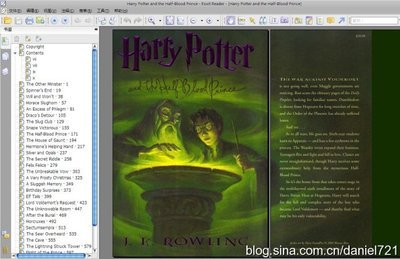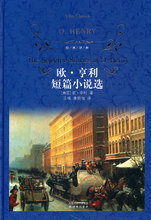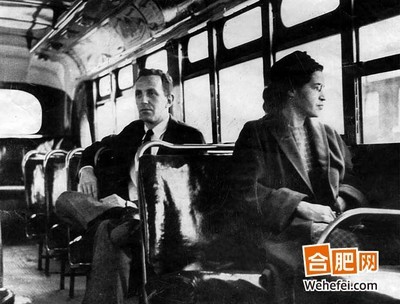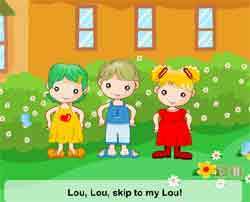AnInterviewwithCarylPhillips
ZhangHelong
Abstract:CarylPhillips,bornintheCaribbeanandraisedinEngland,isaleadingnovelistincontemporaryBritishliterature.Hisbest-knownnovelsincludeHigherGround(1989),Cam-bridge(1991),CrossingtheRiver(1993),whichwasshortlistedforthe1993BookerPrize,TheNatureofBlood(1997),andADistantShore(2003),thewinnerofthe2004CommonwealthWritersPrize.HisworksmainlyfocusontheAfricanDiasporabothinhistoryandinthecontem-poraryworld.InMarch2011,Dr.ZhangHelong,ProfessorofShanghaiInternationalStudiesU-niversityandaFulbrightResearchScholaratYaleUniversity,interviewedPhillipsinNewYork.Inthisinterview,Phillipstalksaboutthesubjectmatterandnarrativestructureinhismajorworks,andstatesthatfictionisanalternativehistory.HeadmitsthathewasinfluencedbyAfri-canAmericanwriterslikeRalphEllison,RichardWrightandJamesBaldwin,andexplainswhyheisconcernedwithissueslikebelonginganddisplacementasamigrantwriter.HebelievesthatBritishcultureisdominantinhisbloodalthoughhemaybeculturallyhybridtosomeextent.Keywords:CarylPhillipsDiasporaslavenarrativeidentityculturalhybridity
Author:Dr.ZhangHelongisprofessoratInstituteofLiteraryStudies,ShanghaiInternationalStudiesUniversity(Shanghai200083,China).HisresearchfieldiscontemporaryBritishfiction.Email:hlzhang@shisu.edu.cn
标题:卡里尔·菲利普斯访谈录
内容摘要:卡里尔·菲利普斯是当代英国著名黑人小说家。他出生于加勒比海的圣基茨岛,
《高地》(1989)、《剑桥》(1991)、《渡河》四个月后随父母移居英国。他的长篇小说代表作有
(1993)、《血液的本质》(1997)、《远岸》(2003)等,其中《渡河》获1993年布克小说奖提名,《远岸》获2004年英联邦最佳作家奖。他的作品主要以描写非裔流散者为主。2011年3
《外国文学研究》月,应之邀,上海外国语大学张和龙教授在耶鲁大学做富布莱特研究学者期间赴纽约对菲利普斯进行了专访。在访谈中,菲利普斯谈及自己的小说主旨与叙事结构,认为小说是另一种历史。他表示自己深受美国非裔作家埃里森、赖特、鲍德温等人的影响。作为旅居美国的英国作家,他对身份、归属与错位等问题非常关注。他还提及自己熟悉英美国与加勒比文化,但身上流淌着的主要是英国文化的血液。国、
关键词:卡里尔·菲利普斯流散奴隶叙事身份文化混杂
作者简介:张和龙,文学博士,上海外国语大学文学研究院教授,主要研究当代英国小说。
2外国文学研究2011年第3期
Zhang:Inmid-1980s,youpublished2shortnovels,TheFinalPassage(1985)andAStateofIndependence(1986).Asyousaidatonetime,thesetwoearlynovelsareconventional,linearandchronologicalintime.Inretrospectasanestablishednovelist,whatwouldbeyourpresentfeelingstowardthem?
Phillips:ActuallythefirstsectionofTheFinalPassageiscalled“TheEnd.”Soit’snotthatchronological.AStateofIndependenceisquitechronological.(Butin)TheFinalPassage,actually,theepigraphisfromEliot,andisabouttime.IthinkIwasveryaware,evenintheveryfirstnovel,ofmovementintime,andnotdoingthingsinachronologicalorder.Icouldhavebe-
t.Rightfromthebe-gunthenovelintheCaribbean,andjustprogressedtoEngland,butIdidn’
ginning,Iwasinterestedintherelationshipofstorytellingtotime.
Actually,mythirdplay,TheShelter,issetintwodifferenttimeperiods,the18thcenturyinthefirstact,andthesecondactinthe1950s.Theplaywaspublishedandperformedin1983.ThatwastwoyearsbeforeTheFinalPassage.SoIthinkevenbeforeTheFinalPassage,Iwasbecomingawareoftryingtotellstorieswhichutilizedelementsoftimeinamorecreativeway.
smuchmoreformallyWithregardtoAStateofIndependenceyouareabsolutelycorrect.It’
chronological,withaconventionalnarrative.IthinkprobablybecauseitwasbornoutofobservingtheCaribbeanataparticularturningpoint.It’sacontemporarynovel,asortofsemi-politicalno-
treallyfeelasthoughIhadmuchroomtomovearoundintime.Ijustwantedtovel,soIdidn’
tellwhatIthoughtwasquiteanimportantstory.
Zhang:Yournext3novels,HigherGround(1989),Cambridge(1991),andCrossingtheRiver(1993),haveestablishedyourselfasagreatestnovelist.Intheseworks,therewasobvious-lyaturnofdirectionfromyourearlywritings.Whatwasyourstateofmindduringthatperiod?
Phillips:IthinkobviouslyIbegantotravelalotmore.Iwasfortunatelyabletocometothe
dalsobeenintheCaribbeanalotduringtheUnitedStatesquiteabitduringthisperiod.I’
1980s,soIthinkIwasbeginningtoseerelationshipsbetweenBritain,America,andtheCarib-bean,andwastryingtosomehownotonlyunderstandtherelationshipsinacontemporarysense,buttotrytounderstandthestoriesthatwerecirculated,ifyoulike,historicallybetweenthesethreeregions:theCaribbean,theUnitedStatesandBritain.Thereseemedtobelotsofuntoldnarrativesinthesesocieties.
sagoodquestionaboutmystateofmind.IsuspectitwasdefinitelyinfluencedbythefactIt’
thatIwastravelingquiteabitduringthisperiod.During1990,1991and1992,Iwaslivingin
teaching.IwroteCambridgebeforeIcametoAmericatoteach.Iwrotetheno-theUnitedStates,
velintheCaribbean,andfinishedthatnovelin1990.InSeptember1990,ItookmyfirstjobasateacherinAmericainMassachusetts.SoIthinkCrossingtheRiverdefinitelywasthefirstbookIwrotewhenactuallylivingintheUnitedStates.ButwithCambridge,IwaslivingintheCaribbe-an.
Zhang:These3novelsrepresentedyourintenseinterestinhistory.Yourrepresentationofhistoryisuniqueandparticularlyenlightening.Whatisyournotionofhistory?Whatdoyouthinkoftherelationshipbetweenhistoryandfiction?
Phillips:Mynotionofhistoryisit’sastory.Theword“story”isactuallycontainedintheword“history.”Somebodyhasconstructedthestorytoexplainwhowe,thecollectivewe,are,whetherweareChinese,whetherweareAmericans,whetherweareBritish;somebodyhascon-
smyideaofhistory;tomeit’sjustastory.structedthestorytoexplaintouswhoweare.That’
It’sopentointerpretation.It’sopentobechallenged.It’sopentobere-writtenandre-struc-tured.Itshouldn’tbetheBiblicalstory,youknow.Everythingisopentointerpretation,butIthinktheconventionalnotionofhistorywereceiveinschoolisthatthereisonlyonestory.Be-
ZhangHelong:AnInterviewwithCarylPhillips3
causeofmyupbringing,IneverbelievedthestorythatIwastoldofthehistoryofBritain.IneverreallybelievedanystorythatwastoldtomeashistorybecauseIalwaysknewitwasopentointer-
whenIwastravelingquiteabitbehindpretation.Thiswasreinforcedformeduringtheearly80s,
theIronCurtainincountrieslikeEastGermanyandPoland,whereitwasobviousthattheirnotionofhistorywasconstructedbytheSovietUnion.Itwasn’ttheirhistoryreally.SoeverywhereIseemedtoturn,Iwasseeingthesefalsehistories.Soforme,fictionwasjustanalternativehisto-ry.It’sjustadifferentwayoftellingastory,hopefully,inamoreengagingway.
Zhang:Asfarastheslavenarrativeisconcerned,ProfessorHenryLouisGatessaidthat“inthelonghistoryofhumanbondage,itwasonlytheblackslavesintheUnitedStateswhocreatedagenreofliterature.”Yourwritingsseemtofollowthissub-genreofliterature,butobviouslyinaverydifferentway.Haveyoueverbeeninfluencedbythepreviousslavenarrative?
Phillips:I’vereadacouple,butI’venotbeeninfluencedbytheform,theactualstruc-
venotreallybeeninfluencedbyanythingthat’sbeensaidcritically.Ithinkthemostture,andI’
importantinfluenceisthefacttheyexist.Thefactthattheslave,orformerslave,founditpossi-bletowritetheirstorymeansthatIcanmakeuseofthatmodeofexpressioninmywriting.Slavesdidwritetheirstories;thereforeIcanimaginemyselfintothemindoftheslave,andwriteasto-ry.Sothefactthatslavenarrativesexistisimportantbecauseitmakesitpossibleformetoimag-ine.ButIneversatdowntolookattheslavenarrativeasaliteraryformandthoughtofthemasbeinginfluential.
Zhang:IcanfindsomesignificantconsistenciesinHigherGround,Cambridge,andCross-ingtheRiver.Itseemstomelikeatrilogy.Didyouintendthemtobecontinuousinthematiccon-cernandformalexperimentation?
Phillips:No,notatall.Butobviouslytheywerewrittenquiteclosetogether,soperhapsitmakessensethatyoumightthinkofthemasatrilogy.No.Iwasjustconcernedwithwritingthenextbook.Ididn’tthinkofthemasbeingrelated.
Zhang:I’venoticedthatthestructuresofthe3novelsareverysimilartoeachother.Thereareusuallyseveralbothseparatedandconnectedsectionsineachofthem.Whateffectwouldyouexpectthestructuretoproduce?
Phillips:TheonlyeffectIhopethestructureproducesisthatitengagesthereaderinaway
con-whichchallengesthereadertothinkaboutconnectionsbetweenpeopleandplacesandtimes,
tthoughtaboutbefore.Isometimesthinkofmyselfastry-nectionsthatperhapsthereaderhasn’
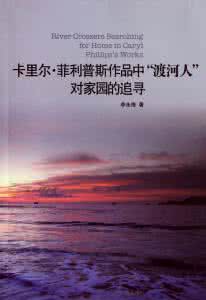
talwaysconnectbyingtobuildbridgesanddigtunnelsbetweenvariouspartsofbooksthatdon’
wayofcharactersinthemannerinwhichaconventionalnovelmight.Generallyyouarenotgoingtopickupabook,thenhalfwaythroughthenovel,haveacompletelynewcharacterappear,orsuddenlymovetoacompletelydifferentcentury,becausethiswouldbetodisrupttheunityof
Iamhopingthatthereaderwillunderstandthatuni-character,placeandtime.Butinmybooks,
tyoftimeandplaceandcharacterisnotalwaysapplicabletothelivesofthesepeople.Ifcharac-tershavebeensubjectedtomigration,slavery,orthesekindsofdisruption,thenit’sveryhardtowriteabookaboutthelivesofsuchpeoplewhichisbaseduponconventionsoftime,placeandcharacter.Thiswouldbetoassumethattheworldiskindofstatic.Thebigeventsthathappeninmost19thcenturynovelsareeventsoftheheart.Theyarenotalwaysgreateruptionsofhistory,tearingapartone’sfamily,leavingone’sland,havingtolearnanewlanguage.SoIcan’tnar-
tassumethattheworldrateanovelwhichisabouttheseideasinaveryconventionalway.Ican’
isjustthesamewhenIgotobedintheeveningasitwillbeinthenextmorning.SoIhavetofindanewwayofreflectingthelivesofthepeopleinthebook.I’vegottofindawayofconnectingthemtothereaderwhichsuggestsdisruption,discontinuity,surprisingthings.That’swhatI’m
4外国文学研究2011年第3期
tryingtodointhesebooks;I’mtryingtodosomethingwiththeformthatsuggeststheturbulenceinthelivesofthesepeople.
Zhang:InTheNatureofBlood(1997),youdescribedboththepersecutionofJewishpeo-pleinancientandcontemporaryhistoryandthevictimizationofBlackpeople.Whatwereyourmotivationandintentiontomakesuchjuxtaposition?
Phillips:Theyarejuxtaposedbecauseinmymindtheyareconnected.IfyougrowupinEu-ropeyouknowthatthegreatnarrativeofloss,andthegreatnarrativeofrupture,istheHolo-caust,thekillingof6millioninnocentJewishpeopleinthemiddleofthe20thcentury.Itseemstomethatifyouareinterested,asIam,inhowtoparticipateinasociety,andwhentobecomeasafeparticipantinasociety,thenthestoryofwhathappenedtotheJewishpeopleinthemiddleofthelastcenturyisagreathorrorstory,astoryofalmostunimaginableloss,becauseJewishpeo-pleinAustria,Germany,France,andmanyothercountries,werenotjustparticipatingontheedgeofsociety,theywerecentraltothesociety,sociallyandculturally.Ifoneunderstandsthatstory,orcomestotermswiththatstory,thenitremindsmeinsomewaysofthetypeofdisrup-tion,andthetypeofdifficultiesthatblackpeopleinthediaspora,notjustblackpeopleinEu-rope,butinAfrica,intheCaribbean,inAmerica,havesuffered.Thisideathatyoucanpartici-pateinthesociety,butitcanbetakenawayfromyouanyminute.Youcanloseyourjob,be-causeofprejudice,becauseofdiscrimination.Sothetwothingsseemtometoberelatedinmyhead,assomebodygrewupinEurope,andwasveryawareoftheHolocaust.
Zhang:InADistantShore(2003)andIntheFallingSnow(2009),you’vechangedyoursettingsandsubjectmatterfromhistorytocontemporaryworld,butIcanstillfindsomecontinuityinyourthematicconcern.Whatkindoftheconnectiondidyouwanttoestablishbetweenhistoryandcontemporaryworld?
Phillips:Iwasn’treallythinkingtoomuchaboutthehistoricalinbothofthesenovels.Imeanobviouslythereareconcernsofthehistoricalthereinbothofthesenovels,butwhatwasmo-tivatingmetowritethemwasarealsenseofdisappointmentwithBritain.IamalwaystravelingtoBritain,butIhaven’tactuallylivedinBritainnowformorethan10years.Iwassomewhatdisap-pointedthatthesocietywasnotmakingmoreradicalstrides,morepositivestrides,towardsbe-comingamoremulti-culturalandharmonioussociety.SomeoftheproblemsthatIrecognizedfrommyownchildhoodcontinuetobeproblematicinBritain.Sointhatsense,yes,historywasfeed-ingthem,becauseIwasthinkingexactlythesamethingsarestillhappening.ButIwantedtotry
slivesarebeingreallytosaysomethingaboutwherethenationisatthemoment,howpeople’
badlyaffectedbyexactlythesameproblemsofpeoplenotcomingtotermswiththeirhistoryinBritain.
Zhang:InADistantShore,asinsomeofyourotherworks,yourexperimentationisimpres-
stechnicalexperimentationbyincludingloosepa-sive.ItsomewhatremindsmeofBSJohnson’
gesinaboxthatcouldbereadinanyorder.Butyoursisdifferentandmuchmoresuccessful.Wheredidyoudrawyourinspirationfrom?
Phillips:Idon’treallyknow.That’shonestlytrue.Ijustwanttowritethenovel,andtheactualformofitjustemergesoutofwritingit.Iseldomhaveaplan,andIgenerallydon’thaveanyparticularmodelinmind.
Zhang:DancingintheDark(2005)isasurprise,becauseit’scompletelyanAmerican
vebeenintheUSAformorethan20years,andyou’renowanAmericanciti-story.Sofar,you’
zen.Coulditbepossiblethatonedayyouwouldbe“labeled”asanAmericanwriterlikeNabok-ov?
Phillips:No.Idon’tthinkso.ThefirstthingtosayaboutthatisIdon’tcontrolthela-
ZhangHelong:AnInterviewwithCarylPhillips5
bels.Sowhateveranybodywantstocallme,it’suptothem.I’mintheNortonAnthologyofAf-ricanAmericanLiterature,butIdon’tthinkmyselfasanAmericanwriter.
maBritishwriter.ButpeopleoftencallmeaIfIweremadetochoose,IwouldsaythatI’
“Caribbeanwriter.”IwillgotoSouthAfricathisweekend,andthepeopletherewrotetomeandsaid,“CouldweputyoudowninourprogramasStKitts-Britain?”Sopeopleaskmeoften.Whatevertheyask,Igenerallysayyes.IftheysayAmerican,Iwouldsayno.InBritain,people(are)kindofsuspiciousofmetosomeextentbecauseI’mnotthere.However,Ienjoythefree-domofbeingawayfromBritain.Idon’tgototheliteraryparties.I’veneverbeenphotographed
tgotodinnerwithotherwriters.Idon’tgotoliterarygatherings.Sowithotherwriters.Idon’
I’mnotreallyseenthatmuch.Sothereisafreedominnothavingtoparticipateinanybody’slit-erarygames.Butthere’salsoadanger,becausepeopledon’treallyknowwheretoplaceyousometimes;theyarenotsure,butIprobablypreferthefreedom.
Zhang:I’vereadsomewherethatyourfavoriteAmericanwritersincludeRalphEllison,RichardWright,JamesBaldwin.TheirworksusuallyfocusonAfricanAmericansincontemporarylife,butonthecontraryyougodeepintothehistoryinmanyofyourworks.Howwouldyouiden-tifytheinfluencesthatyoumighthavereceivedfromtheminspiteofthedifferences?
Phillips:Theinfluencesareveryclear.Ellison,Ilikehisessaysalot.Ilikethefacthe
twanttohavetorepre-grappledwithwhatonemighttermtheburdenofrepresentation.Hedidn’
sentwhatwouldhavebeencalledinthosedays,theNegroes.Hewastryingtobecomeawriter,withoutthatburden.Iadmirehiswork,andIlikethedifferentwayshewritesaboutthisissueinhisessays.
RichardWright,IadmirebecausehisfirstnovelNativeSonwasthebookthatmademewanttobeawriter.That’sthebookthatIreadthatverymuchchangedmyviewofwhatanovelcouldbe,anditpowerfullyrevealedtomewhatthepotentialpoweroffictionwas.Sothisnovelisex-tremelyimportanttome.
AndBaldwin,becauseIknewBaldwin,andhewasafriend,andobviouslyIadmirehiswork.HewasthefirstrealwriterthatIeverknew,thatIgottoknow.HewasthefirstwriterwhomIcouldsitdownandtalkto.
So(Ilike)allthreeofthemforverydifferentreasons.Allthreeofthem,evenEllison,spentagreatdealoftimelivingoutsidetheUnitedStates.Obviously,BaldwinandWright,livedin,anddiedin,France.ButEllisonwasinItaly,hewasinFrancetoo.Lessthantheothertwo,buttheyallhadwhatIcalldifficultieswiththenationalnarrative.Theyparticipatedandcontribu-tedbutdidn’twanttoparticipatetoomuch.Irecognizethatinmyself.IthinkWrightandBald-winbothhadasimilarkindofproblemwithAmerica.TheywerewritingtoAmerica,andwantedAmericatochange,butatthesametime,didn’tnecessarilywanttobeinAmericaforthewhole
twanttobeacheerleaderforAmerica.time.Theydidn’
Zhang:InEmpireWindrush:FiftyYearsofWritingaboutBlackBritain,editedbyOnyeka-chiWambu,youwereplacedinagroupofwritersunderthetitleof“LookingbackinAnger.”Howmuchdoyouthinkyourwritingisanangrylookatimperialismandcolonialisminhistory?
Phillips:Idon’tthinkit’sanger.Ithinkit’sadefinitefrustration,definitedisappoint-ment.I’mfrustratedwithBritain,andI’mdisappointedwithBritain.Thereisnoquestionaboutthat.Idon’thavetobeangry,becauseIhavesomewheretoputmyfrustration,Ihaveanoutlet.IthinkIwouldbeangryifIwasreadingthenewspapers,andreadingreportsaboutthings,andseeingthingsandIcouldn’tdoanythingaboutit.I’mfrustrated;alotofthethingsI’vewrittenaboutaremotivatedbyfrustration.I’vewrittenalot,outofdisappointment.
Zhang:Inyournon-fictionExtravagantStrangers:ALiteratureofBelonging(1997),you
6外国文学研究2011年第3期
mademeditationonbelongingbywriterswhowerenotborninBritain.Howisthis“vexingques-tionofbelonging”(xiii)onyourpartispossiblyrelatedtothesubversionofliteraryconventionsinyourfiction?
Phillips:I’mveryconcernedwiththeissueofbelonging,andit’sinterestingtorelateittoliterature.Ithinkmanywriterswhoemergedbeforemelookedtootherpartsoftheworldfortheirliteraryinfluences.TheylookedbeyondBritain.TheylookedtoLatinAmerica.TheylookedtotheFarEast.TheylookedtotheUnitedStatesofAmerica.Sotheliteraryformsandwaysofex-pressingoneselfwithintraditionalEnglishliterature,havechangedbecauseofthosewriterswho
tfeeltheybelongedinsomewayinEngland.Thesewriterswerepreparedtolookelse-didn’
where,fornarrativegrowth.RememberthisisthecountryofShakespeare,Milton,Dryden,Dickens,andyouaremadetofeelthateverythingyoucouldpossiblywantinliteratureisrighthere.PerhapstheearliergenerationsjustlookedtotheotherEnglishwriters.Butinthesecond
suddenly,alotofwriterswhodidn’tfeeltheybelongedforonereasonorhalfofthe20thcentury,
another,lookedelsewhereandbroughtthesedifferentliterarytraditionsintowhatisnowregardedasEnglishliterature.
saveryveryimportantword.It’scriticalbecauseifButBelongingisthekeyword;that’
youbelong,thereisanelementofsafety,anelementofparticipation,thepossibilityofgrowth.If
tfeelyoubelong,you’realwayslookingoveryourshoulder;you’llneverbefullyrelax-youdon’
ed.That’stheconditionofmanypeopleinmanypartsoftheworld.Theydon’tquitefeeltheybelong,soIdon’teverseeitjustinBritishterms,orinracialterms,tomeit’saglobalprob-lem.Therearecomplexissuestodowithclass,issuestodowithreligion,issuestodowithgen-der,issuestodowithrace.Notquitebelongingtoasociety,yetwantingto,isauniversalphe-nomenon.
Zhang:Inyournon-fictionANewWorldOrder,yousay“Irecognizetheplace,Ifeelathomehere,butIdon’tbelong.Iamof,andnotof,thisplace”(2).Yourepeatedthesen-tencesseveraltimesinthisbook.Whatisusuallytherelationshipbetweenyourpersonalfeelingofbelongingandthedisplacementofmanycharactersinyourownfiction?
Phillips:You’recorrect.I’mveryattractedtocharacterswhodon’tquitebelong,becauseIrecognizesomething,noteverything,butIrecognizesomethingoftheirdilemmafrommyownsituation.AsIsayinthatessay,thedilemmaistobeoftheplace,butnotofitinsomeways.Somattractedtocharacterswhofindthemselvesinthatdilemma.I’
Zhang:Yourworkshavebeenonmigrationanddisplacement.Whatisyourmotivationofdoingso?
Phillips:Themotivationbehindeverythingistomakesure,firstofall,thatitisrecorded.Thedifficultiesthatpeoplearesuffering,makesurethey’rerecorded,makesurewehaverecor-
andhowtheyhavecourageouslytriedtodealwithdedwhatproblemshavebeenvisitedonpeople,
them.Thatisthefirstthing.Ifweneverrecordourhumanexperience,oursenseofloss,our
dhavenomapofhowtosenseoflove,oursenseofdisplacement,oursenseofbetrayal,thenwe’
lookatourselvesandunderstandwhoweare,whatwe’redoinginthisworld.That’sthefirstim-portantthing,torecord.
Secondly,oneobviouslyhopestochangetheworld.It’sabigthing.Whensomeonefinishesabookofmine,orfinisheswatchingaplayofmine,Iwantthemtothinkabouttheworldina
sthehope.WhenIgotoseeagreatfilm,Isitandthinkabouttheslightlydifferentway.That’
worldinaslightlydifferentway,becausethedirectorhasopenedmyeyestosomething.
Zhang:InTheEuropeanTribe(1987),you“addressthemorespecificproblemsoftribal-ismandracisminthesoulofEurope”(xi).InyournewbookColorMeEnglish,thereisanes-
ZhangHelong:AnInterviewwithCarylPhillips7
sayentitled“Americantribalism.”Asaracistandnationalistsentiment,istribalismpossiblyauniversalphenomenon?
Phillips:Yes,it’sauniversalphenomenon.However,youcanonlywriteaboutitifyouunderstandit.YouknowI’velivedintheU.S.forquitealongtimenow,soIcanseesomeas-pectsoftribalism,someaspectsofdiscrimination,inequityandsooninthiscountryveryclearly.
tseethem.WithreferencetotheEuropeantribe,ofWhenIfirstcametolivehereIcouldn’
courseIgrewupinEurope,IseeEurope’shypocrisies.Isawit,that’swhyIwantedtowriteaboutit,becauserelativelyfewpeopleweretalkingaboutit.Theseaspectsoftribalism,ofdis-crimination,ofprejudice,theyhavetoberecorded,writtendown,talkedabout,andwriterscanhelptodothis.
Zhang:Consideringyourpersonalbackground,couldyoupossiblybecaughtbetweensever-alculturesorsubcultures,forexample,theEnglish,theCaribbean,theAfrican,theAmerican,etc?Haveyoureverexperiencedculturalconflicts?Whatdoyouthinkofculturalhybridity?
Phillips:Inordertowriteaboutasociety,youhavetoknowthesocietyprettywell.Youcan’tjustapproachasocietyandhaveacasualknowledgeofitandthentrytoconstructthechar-acters’situation.Youhavetohaveareasonablyprofoundknowledge.IthinkIcouldwriteano-velsetinBritain.IcouldwriteanovelsetinAmerica,andcouldwriteanovelsetintheCarib-bean.
Imaybeculturallyhybridtosomeextent,becauseIunderstandmanyaspectsofAmericanculture.IunderstandCaribbeancultureverywell.AndIunderstandBritishculture.Butit’snot
snotsomethingthatcomesfrommyblood;I’vegainedmyrightsbylivingmybirthright;it’
there.I’velivedinthesethreeplaces.
Zhang:Whatcultureisdominantinyourblood,theBritish,theCaribbean,theAfrican,ortheAmerican?
Phillips:NotAfrican.IwouldsayBritish.It’swhereIgrewup,whereIlearnedtospeak,whereIlearnedtodream.IwouldalwayssayBritain.IfIlivedintheUnitedStatesfor50years,IwouldstillprobablysayBritain.BecauseBritainiswhereIfirstwrote,whereIfirstbegantothinkofmyselfasawriter.ButIdohavesomeunderstandingoftheintricaciesofAmericanlife,partlythroughteachingmanygenerationsofstudentsnow,partlythroughbeingluckyenoughtotravelindifferentpartsofthecountrydoingreadings.Throughtraveling,Ihavesomequiteinti-mateunderstandingofthiscountry,butit’llneverbeasdetailedasBritain.
【WorksCited】
Gates,HenryLouis.TheClassicSlaveNarratives.NewYork:PenguinBooks,1987.
Phillips,Caryl.TheEuropeanTribe.London:Faber&Faber,1987.
---.ExtravagantStrangers:ALiteratureofBelonging.London:FaberandFaber,1997.
2002.---.ANewWorldOrder:Essays.NewYork:Vintage,
Wambu,Onyekachi,ed.EmpireWindrush:FiftyYearsofWritingaboutBlackBritain.London:V.Gollancz,
1998.
责任编辑:罗良功
百度搜索“爱华网”,专业资料,生活学习,尽在爱华网
 爱华网
爱华网
